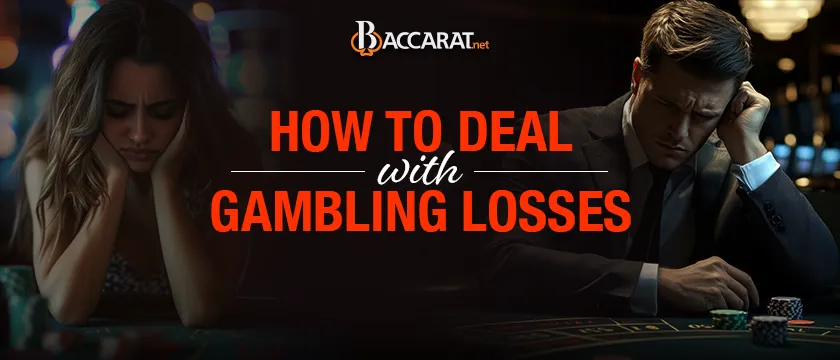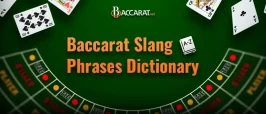Strategies for Dealing with Gambling Losses

Whether you’re visiting your local casino, playing online baccarat, or betting on your favorite sports team, there is no way always to win when gambling. Unfortunately, if you hit a long losing streak, it can begin to be very unsettling and lead to both financial and emotional stress. In severe cases, the immediate reaction may involve shock, denial, frustration, or even panic. While these responses are completely human, it is how one responds to the situation that truly matters and what actions are taken for recovery from a gambling loss.
Gambling losses are more than just monetary setbacks. Research has shown that the brain can interpret these events as traumatic and trigger the same stress response as other major life disruptions. According to Dr. Timothy Fong, a psychiatrist at UCLA who specializes in gambling disorders, losses can activate stress hormones similar to those seen in acute psychological distress. As a result, it can lead to struggles with concentration, sleep disturbances, appetite changes, mood swings, and obsessive thoughts related to the loss.
To recover, it is important that one first understands these reactions. Recognizing that the body and mind are responding to stress, not failure, can help reduce shame and create the mindset needed for recovery. Emotional healing begins with this kind of self-awareness and acceptance.
The Importance of Self-Reflection
One of the most effective ways to initiate healing is through honest self-reflection. Rather than focusing on regret or shame, it’s important to examine the situation objectively. This includes identifying how much was lost, the circumstances surrounding the gambling activity, the games or bets involved, and the moment when things changed from entertainment to something more concerning. Writing down these details, on paper rather than digitally, helps in processing the experience and identifying patterns or warning signs.
Once you have a clear understanding of the situation, the next priority is to create stability, both emotionally and financially. Taking a break from all gambling activities is an important first step. This pause provides critical mental distance and reduces the risk of impulsive decisions. During this time, it’s helpful to limit access to funds used for gambling. Taking steps such as disabling betting apps, setting up financial safeguards, or involving a trusted friend or family member can create a protective buffer during the recovery process.
The Role of Self-Care Routines
Self-care is another foundational element of recovery. Establishing regular routines that support physical and mental well-being, such as consistent sleep, nutritious meals, and daily movement, helps restore balance and reduce the body’s stress response. Even simple activities such as walking, stretching, or spending time in nature can have a positive effect on emotional regulation.
Mindfulness techniques are particularly useful in managing the intense thoughts and emotions that can follow a gambling loss. Breathing exercises, guided meditation, or mindfulness-based journaling can be a healthy way to process stress. Journaling, in particular, can be a very helpful tool for expressing emotions and making sense of what happened without judgment. Physical activity further supports emotional resilience by releasing endorphins and redirecting energy away from negative thought cycles.
In some cases, professional support may be essential. Gambling-related distress often signals deeper issues that can benefit from the guidance of a therapist or counselor. Specialized mental health professionals can help people understand their relationship with gambling and develop effective coping mechanisms.
Support groups are another valuable option. Organizations such as Gamblers Anonymous offer peer-led spaces where individuals can tell their stories and gain encouragement from others who understand the experience firsthand. Group support fosters accountability, reduces isolation, and often plays a key role in long-term recovery.
Creating a Recovery Plan
Developing a structured recovery plan is an important part of moving forward. This plan should focus on immediate financial stability and long-term behavioral change. Addressing debt, establishing a budget, and exploring options for financial repair can ease the burden of loss and provide a clearer way forward. It’s equally important to create new habits and routines that replace gambling with alternatives, whether that’s pursuing new hobbies, building social connections, or setting meaningful personal goals.
Rebuilding a healthy relationship with gambling will require honest self-assessment and firm boundaries. Some individuals may choose to return to gambling in a controlled and considered way, while others may decide that stepping away completely is the better choice. Both paths are valid, but they must be guided by clarity, not emotion. Establishing spending and time limits, avoiding high-risk situations, and committing to regular check-ins with a support system can help deliver long-term success.
Ultimately, recovery from a gambling loss is not only possible, it can be transformative. What may begin as a painful setback has the potential to become a turning point toward greater emotional insight, financial responsibility, and personal growth. While it may be challenging, it also offers an opportunity to rebuild stronger foundations and make decisions that align with long-term well-being.



